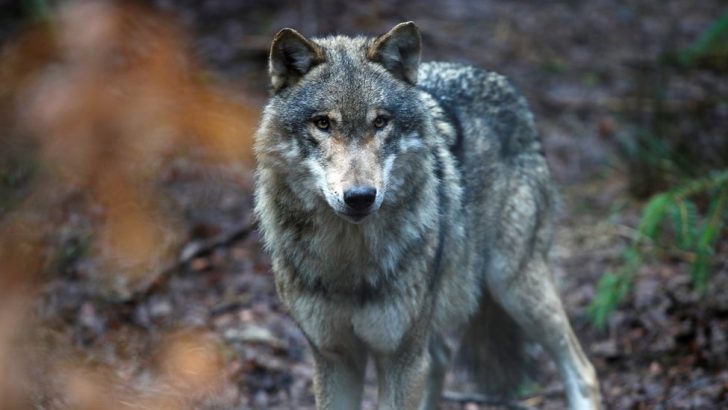The World of Books
By the books editor
Just over a week ago, to men driving along a mountain road around Saint-Martin-Vésubie (see the Nice-Matin newspaper’s website for its report of October 24, 2020), were astonished to encounter a pack of wolves straddling the road ahead.
These it seems were not truly ‘wild wolves’. They had escaped; it seems from during the recent devastating floods in the Department of Alpes-Maritimes from Park Alpha, a wild life sanctuary a little to the north of the village, a popular visitor option in summer.
As is the way these days, they videoed the animals, some five large healthy fine-coated beasts are visible in the three-minute video. Quite indifferent to the approaching car, acting as if they were indeed the ‘lords of all they surveyed’.
The park they had escaped from is in a small valley with a lake fed by streams from the hills around. After the floods it is temporally closed.
This valley lies on the edge of the border with Italy, a high valley ringed with mountains. About an hour-and-a-half drive from Antibes, Nice, Menton and Monaco, this is a real wilderness compared with Côte d’Azure. Just the sort of place needed to ‘rewild’ the indigenous fauna of France. The village has some 1300 inhabitants. The wolves are in the upper valley, which is actually fenced off from the farms below. It has viewing places from which to observe the wolves at large, as well as a tame collection of birds of prey.
The two men in that car were surprised, and perhaps fearful. The European imagination from the Urals to the Pyrenees is haunted by fears real and subconscious of wolves. We were all reared on Little Red Riding Hood (or in the case of the two men, Le Petit Chaperon Rouge), even though here in Ireland the last wolves were killed off towards the end of the 18th Century, the last one allegedly in 1798 (that year of disaster in other ways). But these last creatures were killed, not down in Kerry, or Connemara, or in the mountains of Donegal. They were in the Carlow region!
Rewilding Ireland
There is talk now, however, of rewilding Ireland with wolves, not in Carlow – that would be going a little too far perhaps, but in Donegal – which is quite far enough from many people. I am one of those who thinks otherwise, ever since I read a book that greatly influenced my imagination and my later thinking about ecological matters. This was Never Cry Wolf (1968) by the Canadian author Farley McGill Mowat.
I had already another of his books, The People of the Deer (1952) about the decline and near annihilations of the caribous hunting Inuit – this was long before the creation of Nunavut, the semi-autonomous region for the first people on the edge of the Arctic circle.
Mowat, when in his 20s, was dispatched on a government mission to study the wolf problem. He quickly found there was no wolf problem, though there was certainly a human problem.
The brief version is that he discovered that what city folk believed about wolves was almost entirely wrong”
The book Mowat wrote about his experiences with the wolf pack he studied should be read by every one for what it reveals about the nature of animals left alone, and the nature of human beings who cannot leave anything wild and uncontrolled alone.
The brief version is that he discovered that what city folk believed about wolves was almost entirely wrong. They were not the savage man-attacking creatures that legend and folklore had painted them; far from it.
He wrote a beautiful and humane book many years after about his experiences that has never been out of print since. Indeed the books of Farley Mowat (who died in 2014) were all written with a warmth and love for creation which oddly disturbs many scientists – the sort of people who misunderstand the nature of science in some ways.
His books have been translated into 53 languages and have sold 17 million copies. In its way, Never Cry Wolf is one of the most influential books of modern times. It emphasised lessons we have since had underlined by Conrad Lorenz, Niko Tinbergen, George Schaller, Jane Goodall, Dianne Fossey…despite Mowat’s critics, opinion is going his – and the wolves’ – way.


 Peter Costello
Peter Costello
